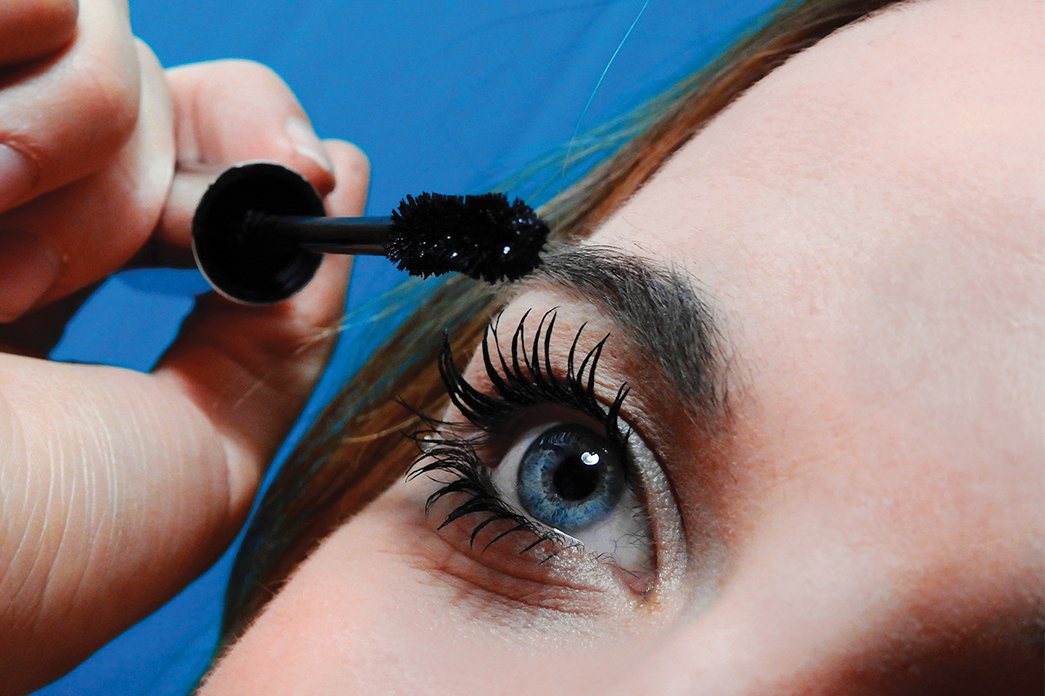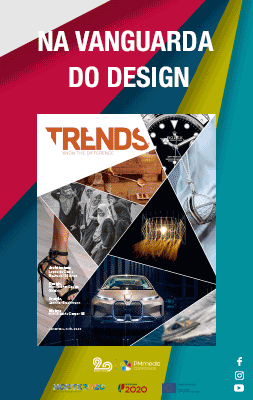
It may not be common knowledge but, during the Second World War, Winston Churchill considered red lipstick to be a basic necessity, and even decreed that it should be distributed as diligently as flour to make bread, because it increased women’s self-esteem and, consequently, men’s morale. It may sound like we’re joking, but we’re not. Economists have even given the phenomenon a name. They called it the Lipstick Index, because it illustrates the fact that in periods of social and economic constraint, consumers, especially women, continued to buy products that made them feel good and gave them a certain sense of ‘normality’.
Interestingly, for the first time since then, a crisis has occurred in which the Lipstick Index had no impact. COVID-19 has forced the world to wear masks and with half of the face covered, sales of cosmetics dropped dramatically, specifically in the lipstick sector and also in perfumes. Due to lockdown and working from home, face-to-face socialising became almost non-existent. This combined with a generalised despondency and fear meant that these products linked to socialising suffered from limited demand. Only later, with mask wearing greatly increased, did investment in eye cosmetics grow, the only facial area that escaped protection.
But, as they say, the world always finds ways to compensate. By comparison, in the same pandemic period, any products related to personal hygiene experienced an increase never seen before. Soaps, shower gels and toothpaste, among others, were in great demand due to the massive spread of the message that hygiene, for example washing and sanitising hands, helped to stop the transmission of the virus. In France, the market for luxury soaps grew by 800% in the week of March the 16th, 2020, at the very beginning of the pandemic. And soon after, successive washing and sanitising of hands brought with it the need for moisturising, which boosted the cream market.
In France, the luxury soaps market grew by 800% in the week of March the 16th, 2020
Staying with the first lockdown, with the closure of most establishments, people were forced to do at home all those procedures that they usually did in salons and spas, such as manicure, pedicure, hair cutting and colouring or waxing. So, there was a growth in sales of some cosmetics, mainly hair dyes (+172%) and nail kits (+218%) then, according to Amazon data on the American market.
In addition to this, as most people were buying online, and also had more time to do so, they started wanting to inform themselves better about the products they were buying. As a result, the cosmetics industry became more scrutinised, in terms of formulae, ingredients and of course results. As safety became a priority in people’s lives, cosmetics became even more regulated.
The type of packaging has also gained importance in the selection of products. Without being able to visit physical stores, the image of the packaging perceived through digital media was crucial. Not only did they become more resilient, but the public started to press for them to be more ecological as well. Another theme that COVID-19 brought to the fore was the urgent need to take care of the planet, further boosting sustainability in this industry, especially among young people, who now prefer beauty with ethics and conscious consumption.
The pandemic also led to consumers paying more attention to their skin. The time at home and the greater investment in ourselves changed the focus to maintaining natural and healthy skin.
Self-care remains at the top of consumers’ priorities, valuing everything that brings joy and serenity to life. The website Zalando, one of the largest in the online fashion and lifestyle sales sector in Europe, recorded a 300% growth in the category of self-care products, aromatherapy and detox products.
Although the cosmetics industry is in a privileged position compared to other consumer areas, these two years have shaken up the market. But the most important benefit of this industry has had a boost when it comes to how it makes us feel, even without wearing lipstick. And if there’s one thing everyone wants today more than ever, it is to feel good.
Interestingly, for the first time since then, a crisis has occurred in which the Lipstick Index had no impact. COVID-19 has forced the world to wear masks and with half of the face covered, sales of cosmetics dropped dramatically, specifically in the lipstick sector and also in perfumes. Due to lockdown and working from home, face-to-face socialising became almost non-existent. This combined with a generalised despondency and fear meant that these products linked to socialising suffered from limited demand. Only later, with mask wearing greatly increased, did investment in eye cosmetics grow, the only facial area that escaped protection.
But, as they say, the world always finds ways to compensate. By comparison, in the same pandemic period, any products related to personal hygiene experienced an increase never seen before. Soaps, shower gels and toothpaste, among others, were in great demand due to the massive spread of the message that hygiene, for example washing and sanitising hands, helped to stop the transmission of the virus. In France, the market for luxury soaps grew by 800% in the week of March the 16th, 2020, at the very beginning of the pandemic. And soon after, successive washing and sanitising of hands brought with it the need for moisturising, which boosted the cream market.
In France, the luxury soaps market grew by 800% in the week of March the 16th, 2020
Staying with the first lockdown, with the closure of most establishments, people were forced to do at home all those procedures that they usually did in salons and spas, such as manicure, pedicure, hair cutting and colouring or waxing. So, there was a growth in sales of some cosmetics, mainly hair dyes (+172%) and nail kits (+218%) then, according to Amazon data on the American market.
In addition to this, as most people were buying online, and also had more time to do so, they started wanting to inform themselves better about the products they were buying. As a result, the cosmetics industry became more scrutinised, in terms of formulae, ingredients and of course results. As safety became a priority in people’s lives, cosmetics became even more regulated.
The type of packaging has also gained importance in the selection of products. Without being able to visit physical stores, the image of the packaging perceived through digital media was crucial. Not only did they become more resilient, but the public started to press for them to be more ecological as well. Another theme that COVID-19 brought to the fore was the urgent need to take care of the planet, further boosting sustainability in this industry, especially among young people, who now prefer beauty with ethics and conscious consumption.
The pandemic also led to consumers paying more attention to their skin. The time at home and the greater investment in ourselves changed the focus to maintaining natural and healthy skin.
Self-care remains at the top of consumers’ priorities, valuing everything that brings joy and serenity to life. The website Zalando, one of the largest in the online fashion and lifestyle sales sector in Europe, recorded a 300% growth in the category of self-care products, aromatherapy and detox products.
Although the cosmetics industry is in a privileged position compared to other consumer areas, these two years have shaken up the market. But the most important benefit of this industry has had a boost when it comes to how it makes us feel, even without wearing lipstick. And if there’s one thing everyone wants today more than ever, it is to feel good.









